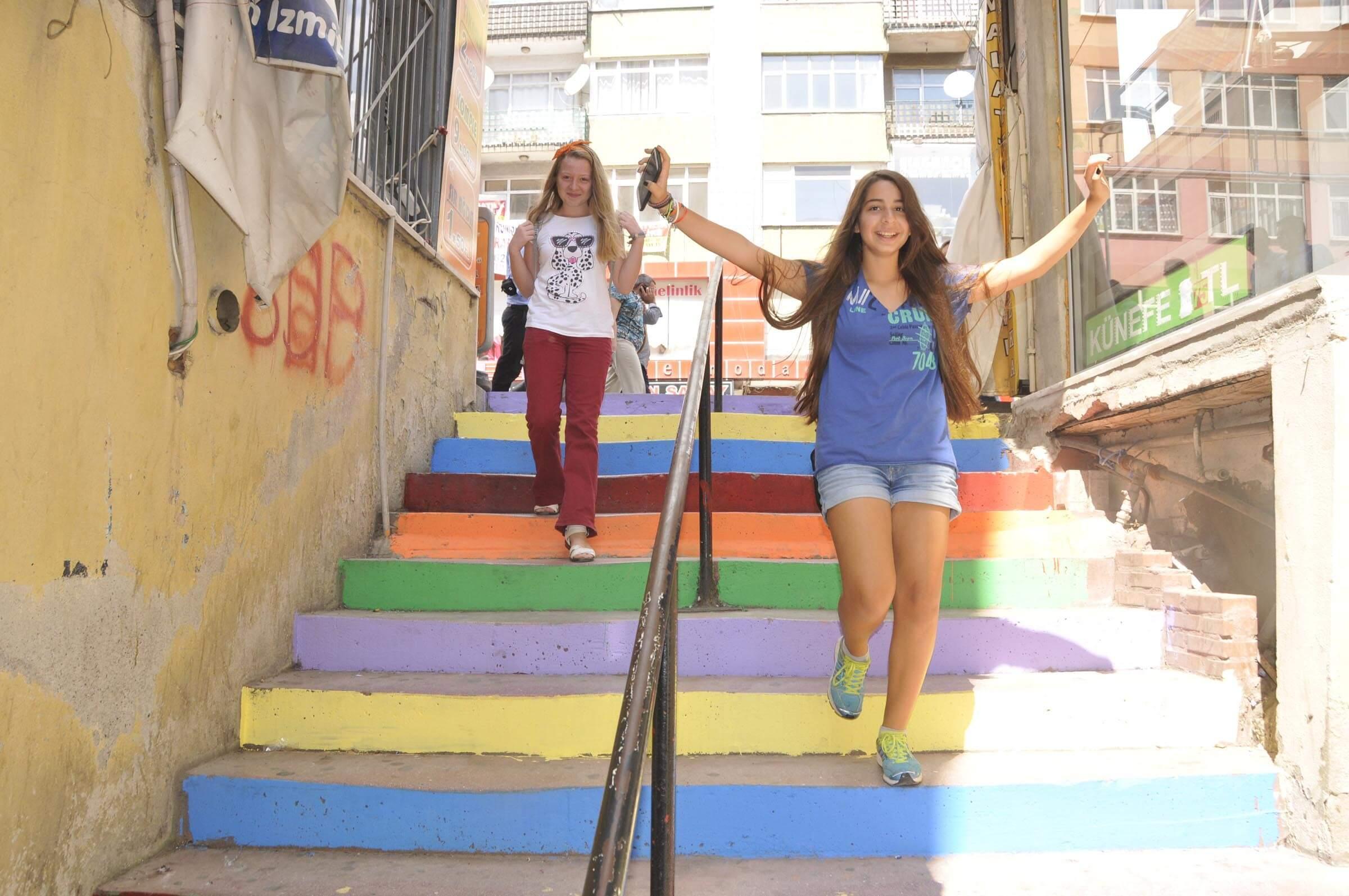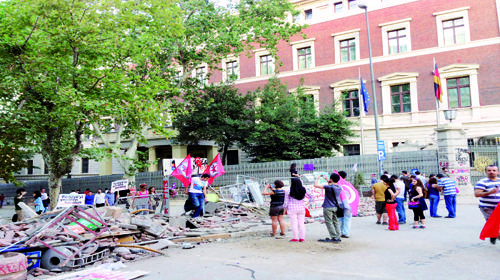Conspiracy theories about conspiracies on Turkey
 Yes, this is about Prime Minister Tayyip Erdoğan’s suspicions about “exterior forces” being behind the Taksim wave of protests, which started modestly two weeks ago to protect an Istanbul park before spreading across the country in the form of middle, educated class unrest.
Yes, this is about Prime Minister Tayyip Erdoğan’s suspicions about “exterior forces” being behind the Taksim wave of protests, which started modestly two weeks ago to protect an Istanbul park before spreading across the country in the form of middle, educated class unrest.Erdoğan takes a “first look at yourselves” mode in bashing the U.S. and the EU spokesmen who ask him to handle things in moderation, knowing that attacking the West and holding them responsible for things going wrong in the country has always been popular in Turkey. Nevertheless, Erdoğan, who has been challenged by his people so widely for the first time in his 11 year rule, is extremely uncomfortable hearing advice from his Western allies on how to behave with his own people. While being proud of Turkey’s rising profile, Erdoğan thinks the Taksim protests came out of blue, so there must be the hand of those who do not want Turkey to be a regional force behind it all.
This badly but freshly taken picture was posted on the Twitter account of Namık Tan, the Turkish Ambassador to Washington DC, seen in the left of the frame. Next to him, in the middle, is Peter Westmacott, the British Ambassador to DC (formerly an ambassador in Ankara and Paris) looking at him with a “What is going to happen now?” look on his face. And on the right there is U.S. Secretary of State John Kerry, gesturing to Tan with his right hand on the shoulder of Westmacott.

How could Kerry know what is happening in Turkey in such detail and tell one of the U.S.’s major allies how to behave? An answer that Erdoğan and his ruling Justice and Development Party (AK Parti) spokesmen found was the Turkish media coverage of protests and street fights between demonstrators and the police. Those were picked up internationally and abused by “external forces” in order to downplay the economic success of the Erdoğan government, according to this theory.
It is unfortunately true that the U.S. is today’s Big Brother, in a sense that George Orwell couldn’t even have dreamed of in his dystopian “1984”; the recent intelligence leaks gave fresh evidence of that. But even if the Turkish media did not write a word, or did not print a single frame of a picture, and if there were no American field agents in Turkey, then all Frank Ricciardone, the U.S. Ambassador to Ankara had to do in order to see what is happening is to half open the curtain of his office and look outside. All has been happening right there.
All Jutta Wolke, the German Consul General in Istanbul, had to do to report what was going on around Taksim was to look out of her window to watch the barricade’s being built by the rioters in front of the Consulate. Kids and families are now taking photos of each other in front of it.

It is difficult to hide anything in today’s world, especially in democratic societies. It is also unfortunately true that all social media is vulnerable to the breech of intelligence services, especially to the Americans’. However, it proves a useful ground when people feel their freedom of expression is restricted. Now it is understood that the AK Parti has been working on a set of counter measures to neutralize the effect of social media on the authority of the government. Ali Şahin, the AK Parti official in charge of social media, told the HDN that “a false tweet is more dangerous than a car bomb.” Having this perception and trying to form counter-tweet units in parallel with counter-demonstrations against the protestors will hardly move Turkey closer to higher standards of democracy.











